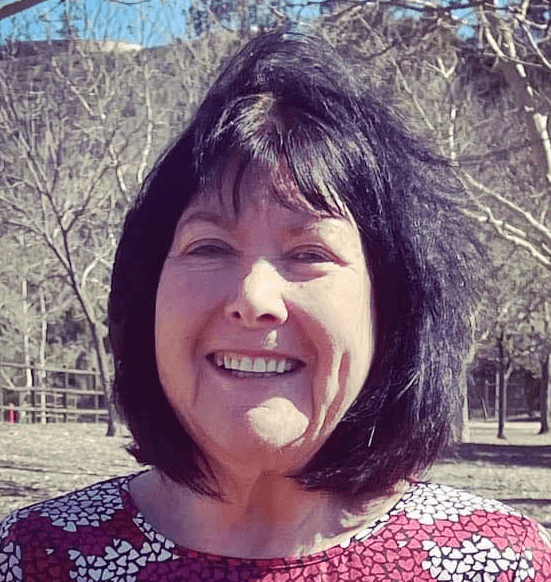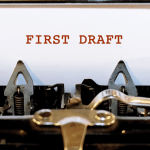 If Becoming a Great Storyteller is Important to You, Here Are Some Valuable Tips
If Becoming a Great Storyteller is Important to You, Here Are Some Valuable Tips
Telling stories is a great way to connect with your audience. It doesn’t matter if you’re up on stage, teaching a class, writing an email to your list, recording a podcast or writing a blog post. Storytelling should play a big part of your content creation and marketing strategies. But how do you come up with those stories in the first place? Here are some valuable tips, as well as ideas on how to avoid some habits that won’t serve you. These will help you to keep the storytelling ideas flowing so you can come up with just the right one for just about any situation. I think you will finally agree that becoming a great storyteller is a valuable goal.
Becoming a Great Storyteller By Sharing A Recent Encounter
Often the best stories are things that are happening to you and all around you. Think about how who you’ve met recently, what you have been doing or what conversations you’ve been having. Can you tie that little story to an email or blog post you’re preparing to write?
Recall A Conversation
Conversations you’ve had are another great source of story ideas. Without going into too many details or sharing too much information about the person you were talking to, share the basic message of the conversation in your story telling.
Dig Deep and Share A Childhood Memory
Childhood memories are another great source of story ideas. The memories that stick with us from way back when are often the ones that taught us an important lesson or had a big impact on who we are today. Think back on what you remember from your childhood and how you can tie those memories into what you’re doing today.
from way back when are often the ones that taught us an important lesson or had a big impact on who we are today. Think back on what you remember from your childhood and how you can tie those memories into what you’re doing today.
A childhood memory of mine is directly related to becoming a great storyteller. My best friend had a little sister who used to come over to my house with their mother to tell my friend, Tory to come home for dinner. When the two mothers were together mine would always share a funny or interesting story. Little Daphne asked my mom one day, “Why do you have so many stories,” to which my mother responded, “You’ll have lots of stories, too, when you get older.”
In this example I refrained from using the ineffective habits of sharing too much of the background leading up to this story and sharing extraneous, but irrelevant information and details.
Pay Attention To Your Surroundings
There are stories going on all around us. Pay attention to the situations and conversations people have around you. You will be pleasantly surprised how many story ideas you’ll get just by paying attention your surroundings.
Carry A Little Notebook
We have established that there is plenty of action going on around us that can help us come up with story ideas. The difficult part is remembering them when the time comes that it will be a good fit with the content or product we’re sharing as an entrepreneur. That’s why it is so important to write them down. Stick a little notebook and pen in your purse, briefcase or jacket. Keep it with you and jot down short notes about ideas, thoughts, conversations and situations that have story telling potential.
Becoming a Great Storyteller By Listening To Your Family and Friends
Pay close attention to your loved ones. They are sharing stories with you on a regular basis. Listen to your kids when they come home from school. Sit down for an after-school snack and ask them about their day. Listen to your spouse, friends, and neighbors as they share their experiences with you. Even people who complain regularly have stories you can retell, perhaps with a new twist. You will have an almost never-ending supply of storytelling material.
Connect Two Unrelated Events or Situations
A great way to get people to pay attention to your stories is to surprise them. And a simple way to do that is to connect two completely unrelated things. Find a little common ground between the two events and make it work. For example, you could tell a story about how your daughter got on student council and find a lesson in there that can also be applied to growing your social media audience. “How my daughter’s seat on her student council can help grow your Facebook reach” grabs your attention, doesn’t it?
Keep looking for new ideas and keep telling those stories to grow your business, connect with you readers and make the sale.
Becoming a Great Storyteller by Modifying Your Habits
The stories you choose to tell matters just as much as how you decide to tell it. When I am engaged in public speaking, whether it’s on a teleseminar or webinar or a live speaking engagement I tell stories throughout my presentations. My goal is to inspire action and motivate others to understand the power of the topic I am sharing with them. But I have had to learn how to tell stories in a way that is powerful and relevant in order to engage my audience.
I used to give a lead up to the story I wanted to share. While it’s important to include at least some background information, sharing too much detail is not effective. Instead, set the scene quickly and concisely and then tell your story.
I’ve learned to share the point of the story first so that my audience will more easily be able to comprehend my key takeaway. Then I explain the context in one sentence before moving on to the main message in my story. I had to practice this, or else I would spend too much time explaining and not have time to actually tell the story I intended to share.
I recently shared a story with people in an intermittent fasting group (please come aboard if you’re called to this, as the program and the people are changing my life) I’m a part of, while we were all on a Zoom call with the facilitators of the group, Dr. Ellen Britt and Denise Wakeman. Our topic of the month is “fermented foods” and I immediately thought back to the time when I was bringing a glass jar of kimchi from southern California to Miami for my friend.
He had attempted to find some closer to where he lived, but to no avail. I wanted to surprise him by bringing in with me when I visited. This was back when you could bring liquid on a plane and I stored in carefully in the overhead bin and took my seat. An hour or so into the flight the lady next to me, with whom I had been talking earlier, wrinkled her nose and exclaimed, “I smell kimchi!” I quickly jumped up and opened the bin to find the top of the jar had loosened (most likely due to the air pressure when we reached a certain altitude) and liquid was oozing down the sides. Luckily, I had it wrapped in a plastic trash bag, but it was still a mess. And everyone in the cabin had to smell it all the way to Miami until we landed three and a half hours later!
Instead of sharing lots of backstory and additional details of this incident I have shared only as much as is necessary. I even included some dialogue, which is crucial in becoming a great storyteller.
Like in a movie, we want to show more than we tell. Master this and you will be a sought after speaker. Storytelling for public speakers demands that we include action and dialogue. Allow your audience to visualize the scenes you are describing. Adding even small snippets of narrative evidence can also go a long way to backing up the point you want your story to make.
Becoming a Great Storyteller Means Not Taking Too Much Time
We all have a short attention span that lasts only seconds before we lose focus. If your story rambles on for too long, you risk losing your audience’s attention. But how long is too long? Think of it like a countdown timer for cooking. Let your special dish cook too long and it will be overcooked or burned. Apply that logic to storytelling.
I know it sounds very brief, but an ideal length is between 1:30 and 1:45 to tell your story. That’s all the time you need to share a good anecdote before moving on to the next piece of your message. When you start getting close to two minutes, you need to start wrapping up your narrative. In public speaking especially, effective storytelling is brief storytelling.
You need dialogue to bring a story to life, and one line can make for a great climax to your story. In my examples above, I shared dialogue from the key players in the scenes I was sharing with you. Your stories will be much more effective when you allow the people in them to speak in their own voice and by using their words.
Becoming a Great Storyteller Means Getting to the Good Part Quickly
Resist the urge to go off in different directions when you’re building up the action of your story. These tangents will cause you to lose momentum and confuse your audience by discussing something that doesn’t contribute to your main point.
You’re telling a story to make your presentation engaging, which means that how you tell it matters just as much as what the narrative entails. Your goal is to maximize the impact of your overall message, and maybe even leave your audience wanting more.
Becoming a great storyteller will make a difference in your life, in terms of improving your sales skills, building relationships, and preparing you for public speaking to get your message out to the world.
I’m bestselling author, marketing strategist, and entrepreneur Connie Ragen Green and I would love to connect further with you to help you to achieve your goals. If you are interested in learning how to optimize the syndication of your content, please take a look at my popular Syndication Optimization training course and consider coming aboard to increase your visibility, credibility, and profitability. I’m here to serve you!






Thank you for this Connie! Funny story, I was watching the Modern Family finale the other week and the writers were saying many of the funny things that happened on the show actually stemmed from something that happened in the writers life.
Everyone has a story, even if we don’t think we do, lol.
I’ve known some great storytellers in my life, but it’s not my strong suit unless I’m writing. Sometimes I can do it well then, but not if I’m talking. My memory isn’t that great.
These are some great tips! We need to modify our stories to the situation. Blog posts do not need every intimate detail that a 5 minute speech might enable.
And, I am so guilty of running off on a tangent when I tell a story instead of encapsulating the essence of the story itself.
Thank you so much for your well thought out comment, Audrey. That was my mother’s name and perhaps I will write a short story as a blog post where I share more details about how she encouraged me to write and be creative, paving the way for my foray into entrepreneurship. Storytelling had become almost a lost art until blogs and self-publishing debuted not so very long ago and made them in vogue once again.
Connie Ragen Green